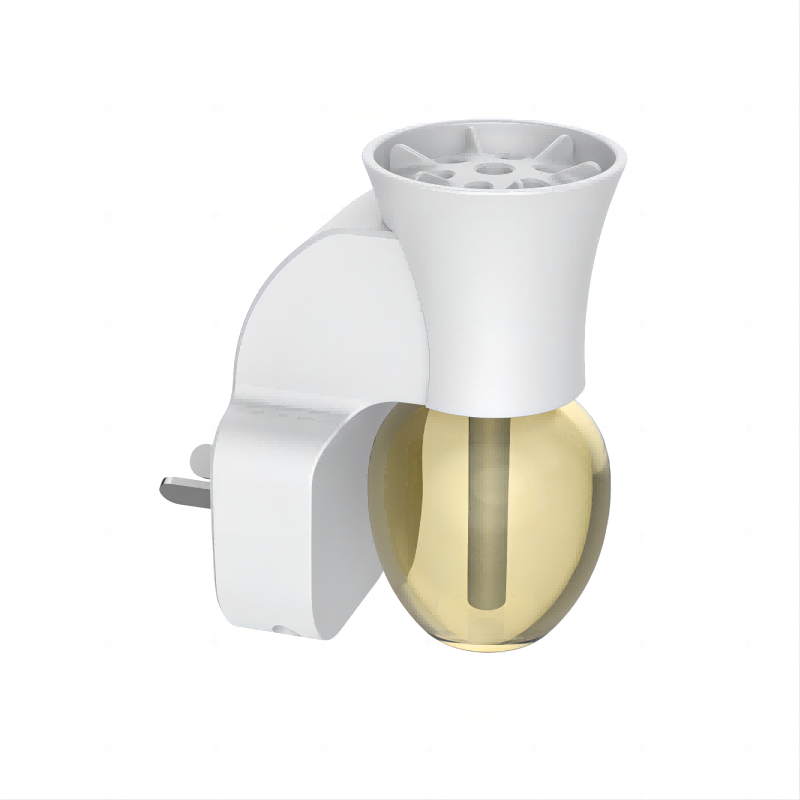Aromatherapy has gained significant popularity as a holistic approach to enhancing physical and emotional well-being through the use of essential oils. While many people enjoy the pleasant scents and calming effects of these oils, understanding the science behind aromatherapy and how Plug-in Diffusers work can provide deeper insights into their benefits.

1. Understanding Aromatherapy
Aromatherapy involves the therapeutic use of essential oils extracted from plants, flowers, and herbs. These concentrated liquids contain the plant's natural aromatic compounds, which are believed to have various therapeutic properties. The practice is rooted in ancient healing traditions, with evidence of its use dating back thousands of years in cultures around the world.
Essential oils can be inhaled, applied topically, or used in diffusers, with inhalation being the most common method for promoting emotional well-being.
2. The Role of the Olfactory System
The olfactory system plays a crucial role in how we perceive scents. When essential oils are diffused into the air, the tiny molecules are inhaled and interact with the olfactory receptors located in the nasal cavity. This interaction sends signals to the olfactory bulb, which then relays information to the brain.
The brain's limbic system, responsible for emotions and memories, is closely linked to the olfactory bulb. This connection explains why certain scents can evoke strong emotional responses or memories. For example, the scent of lavender may trigger feelings of calm and relaxation, while citrus scents might energize and uplift one's mood.
3. Impact on Emotions and Mood
Numerous studies have shown that aromatherapy can have a significant impact on emotional health. The inhalation of specific essential oils can influence brain activity and the release of neurotransmitters, which are chemicals that transmit signals in the brain.
Stress Reduction: Scents like lavender, chamomile, and ylang-ylang have been shown to lower cortisol levels, the hormone associated with stress. This reduction can lead to improved mood and relaxation.
Mood Enhancement: Citrus oils, such as lemon and orange, are known for their uplifting effects. Research indicates that these scents can increase serotonin levels, a neurotransmitter that contributes to feelings of happiness and well-being.
Improved Focus and Concentration: Certain essential oils, like peppermint and rosemary, are believed to enhance cognitive performance and concentration by increasing alertness and mental clarity.
4. How Plug-in Diffusers Enhance Aromatherapy
Plug-in Essential Oil Diffusers play a vital role in delivering the benefits of aromatherapy effectively. These devices work by dispersing essential oils into the air, allowing the scent molecules to reach the olfactory receptors efficiently. Here’s how they contribute to the aromatherapy experience:
Consistent Release of Scents: Plug-in diffusers provide a continuous release of essential oils, ensuring that the aroma fills the room consistently. This steady diffusion enhances the therapeutic effects over time, making it easier to maintain a calming or invigorating atmosphere.
Ease of Use: With their simple plug-and-play design, these diffusers are incredibly convenient. Users can easily switch between different essential oils to suit their mood or the time of day.
Controlled Environment: Plug-in diffusers allow users to create a controlled aromatic environment, making it easier to use specific scents during activities like meditation, yoga, or even while working.
5. Health Benefits of Aromatherapy
Beyond emotional benefits, aromatherapy has been linked to various physical health advantages. While research is ongoing, some of the potential health benefits include:
Relief from Headaches: Essential oils like peppermint and eucalyptus are often used to alleviate headache symptoms, providing relief through inhalation or topical application.
Improved Sleep Quality: Lavender essential oil is widely recognized for its sedative properties, making it a popular choice for those seeking to improve sleep quality and combat insomnia.
Enhanced Immune Function: Certain essential oils, such as tea tree and eucalyptus, have antimicrobial properties that may help support immune function and protect against illness.
The science behind aromatherapy illustrates a fascinating interplay between scent, emotion, and well-being. Plug-in Essential Oil Diffusers serve as effective tools for harnessing the benefits of essential oils, making it easy to integrate aromatherapy into daily life. By understanding how these devices work and the impact of scents on our emotions and health, individuals can create personalized environments that promote relaxation, focus, and overall well-being. Whether used for stress relief, mood enhancement, or improved sleep, aromatherapy offers a holistic approach to enhancing quality of life through the power of scent.







